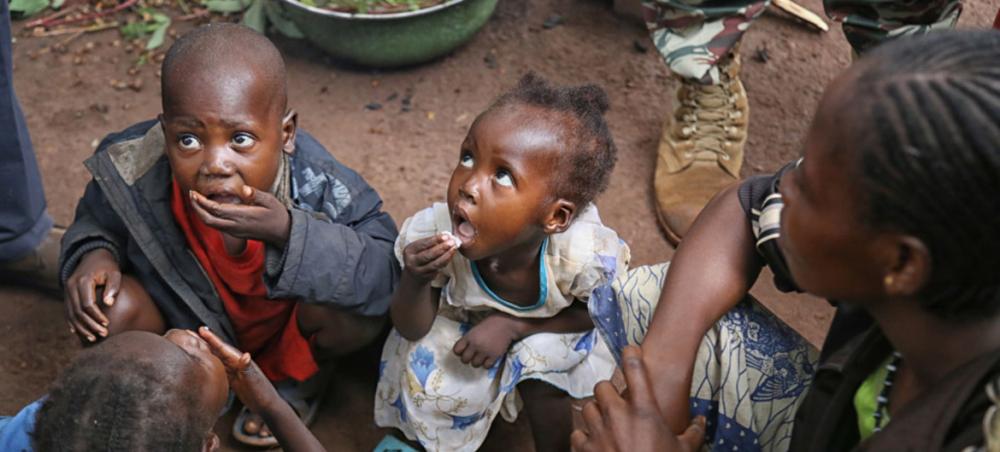Just Earth News | @justearthnews | 16 May 2018

New York, May 15: At least 350,000 children in the Central African Republic (CAR) are out of school and lack access to health and other basic services, including nearly 29,000 who have fled escalating violence this year, the United Nations Children’s Fund (UNICEF) has warned, urging warring parties to stop the fighting.
“Children are paying the highest price for this new surge of violence,” UNICEF Regional Director for West and Central Africa, Marie-Pierre Poirier, said over the weekend, adding: “All actors should stop violence against children now. The world must not forget the children of the Central African Republic. Protection of children should come first.”
The already precarious humanitarian and security situation in the country has deteriorated over the past year, worsening even further since the start of 2018. An estimated 687,400 people are displaced within the country, up from 440,000 in 2017, including more than 357,400 children.
This year alone, at least 55,000 people - including 28,600 children – have fled their homes because of escalating brutality and violence.
UNICEF said that a third of children are currently out of school. Close to half of all children are not fully immunized and 41 per cent of children under the age of five suffer from chronic malnutrition.
The agency is providing children with life-saving assistance. “UNICEF and our partners are achieving encouraging results focusing on four key priorities: scaling up immunization, ending malnutrition, providing education, and protection; including in emergency situations,” said Ms. Poirier.
In 2017, UNICEF and partners vaccinated more than 800,000 children under-five against polio, representing 98 per cent coverage, and treated more than 26,000 children suffering from severe acute malnutrition.
Also last year, UNICEF supported the release of 2,969 children from armed groups, and helped set up 315 child-friendly and temporary learning spaces in displacement camps, helping around 56,600 children.
However, up to the end of April, only 15 per cent of UNICEF’s 2018 humanitarian appeal for the country has been funded. The agency needs an additional $48 million.
“With significant investment in targeted interventions, we can make a real difference for children both in internally displaced sites and host communities,” said Poirier.
MINUSCA/Nektarios Markogiannis